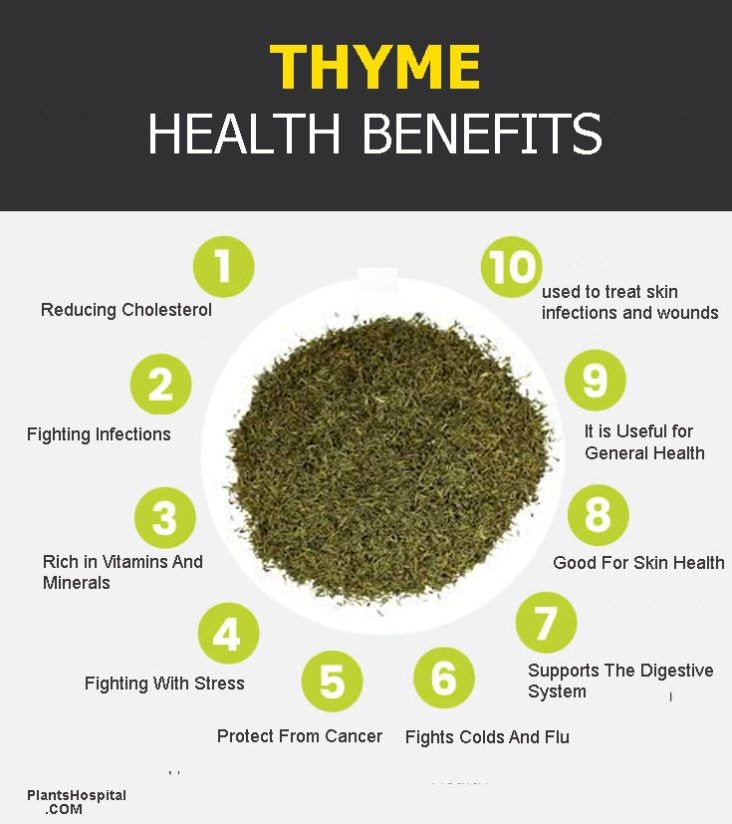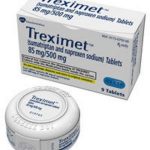
What Is Thyme Good For?
Thyme has numerous benefits due to its rich content of antioxidants, vitamins, and minerals.
Thyme is rich in antioxidants, vitamins, and minerals and has anti-inflammatory and antimicrobial properties. It contains compounds that improve overall health.
Here are 25 benefits of thyme:
- Treats respiratory issues: Thyme functions as an expectorant and antimicrobial agent.
- It can be used to treat bronchitis, asthma, congestion, colds, flu, sinuses, sore throat, or allergies.
- It removes phlegm and mucus, reduces inflammation, and prevents bacterial growth.
- Brewing thyme leaves into a strong tea is effective in relieving respiratory issues and soothing the throat.
- Lowers blood pressure and cholesterol levels: Thyme lowers blood pressure and cholesterol, making it beneficial for those with hypertension.
- Studies have shown that thyme extract can lower heart rate and improve cholesterol levels.
- Improves circulation: Thyme promotes the synthesis of red blood cells, improving blood circulation and oxygenation.
- Protects the heart: Thyme’s antioxidants and minerals, particularly potassium and manganese, benefit the heart.
- Potassium relaxes blood vessels, lowers blood pressure, and reduces the risk of cardiovascular diseases.
- Treats anemia: Thyme is a good source of iron, which is essential for red blood cell growth.
- Improves digestive health: Thyme reduces gas production and improves digestion.
- It acts as an antispasmodic, easing intestinal pain and bloating.
- Thyme tea is recommended for indigestion and bloating.
- Thyme’s volatile oils relieve intestinal cramping.
- Has potential antioxidant properties: Thyme has the highest antioxidant content of any herb.
- Its antioxidants help neutralize free radicals and prevent oxidative stress.
- Thyme protects organs, brain pathways, heart, eyes, and skin.
- Aids in weight loss: Thyme tea can suppress appetite and improve metabolism, aiding in weight loss.
- Improves bone health: Thyme is high in vitamin K, iron, calcium, and manganese, promoting bone formation and reducing the risk of bone disorders.
- Is traditionally used during pregnancy: Thyme tea is used in traditional medicine to induce labor, but should be used with caution during pregnancy.
- Eases menstrual cramps: Thyme tea reduces menstrual cramps and provides relief from other side effects of menstruation.
- Boosts immune system: Thyme’s high vitamin C content boosts the immune system and promotes collagen production.
- May help fight cancer: Thyme’s active ingredients may prevent the growth of tumors.
- Carvacrol, a component of thyme, has anticancer qualities.
- Carvacrol shows promise for colon cancer prevention and treatment.
- Has antibacterial, antifungal, and antimicrobial properties: Thymol, the most active component in thyme, fights infections and lowers immune system strain.
- Thyme essential oil has antibacterial activity against bacteria and yeast.
- Thyme tea’s effectiveness is still being studied.
- Calms the nervous system: Thyme relaxes and supports the nervous system.
- Improves cognition: Thyme increases hormone levels, delaying the onset of neurodegenerative and psychiatric illnesses.
- Contains essential vitamins and minerals: Thyme provides vitamins A and C, copper, fiber, iron, and manganese.
- These nutrients improve infection-fighting abilities and help the immune system.
- Prevents food poisoning: Thyme disinfects food and prevents food contamination.
- Thyme essential oil improves the shelf life of food and cleanses contaminated produce.
- Protects oral/dental health: Thyme extracts are used in dental products to prevent infections and maintain teeth health.
- Reduces atopic dermatitis: Thyme’s anti-inflammatory and antibacterial properties help reduce skin layers associated with dermatitis and prevent secondary infections.
- Treats oral thrush: Thyme oil can be used to treat oral thrush and promote oral health.
- Improves vision: Thyme’s high vitamin A content improves vision and prevents eye diseases.
- Reduces stress: Thyme’s vitamin B6 helps reduce stress by affecting neurotransmitters in the brain.
- Fights foodborne bacterial infections: Thyme oil has antibacterial properties against foodborne germs.
- Thyme oil is effective against resistant forms of bacteria.
- Prevents food from spoiling: Thyme inhibits bacterial growth and prevents gastrointestinal problems caused by parasites.
What is thyme?
Thyme is a group of herbal plants in the Thymus genus.
The most common variety is Thymus vulgaris, known for its culinary and medicinal benefits. Its subtle aroma enhances a variety of meals.
The most common variety is Thymus vulgaris, known for its culinary and medicinal benefits. Its subtle aroma enhances a variety of meals.


